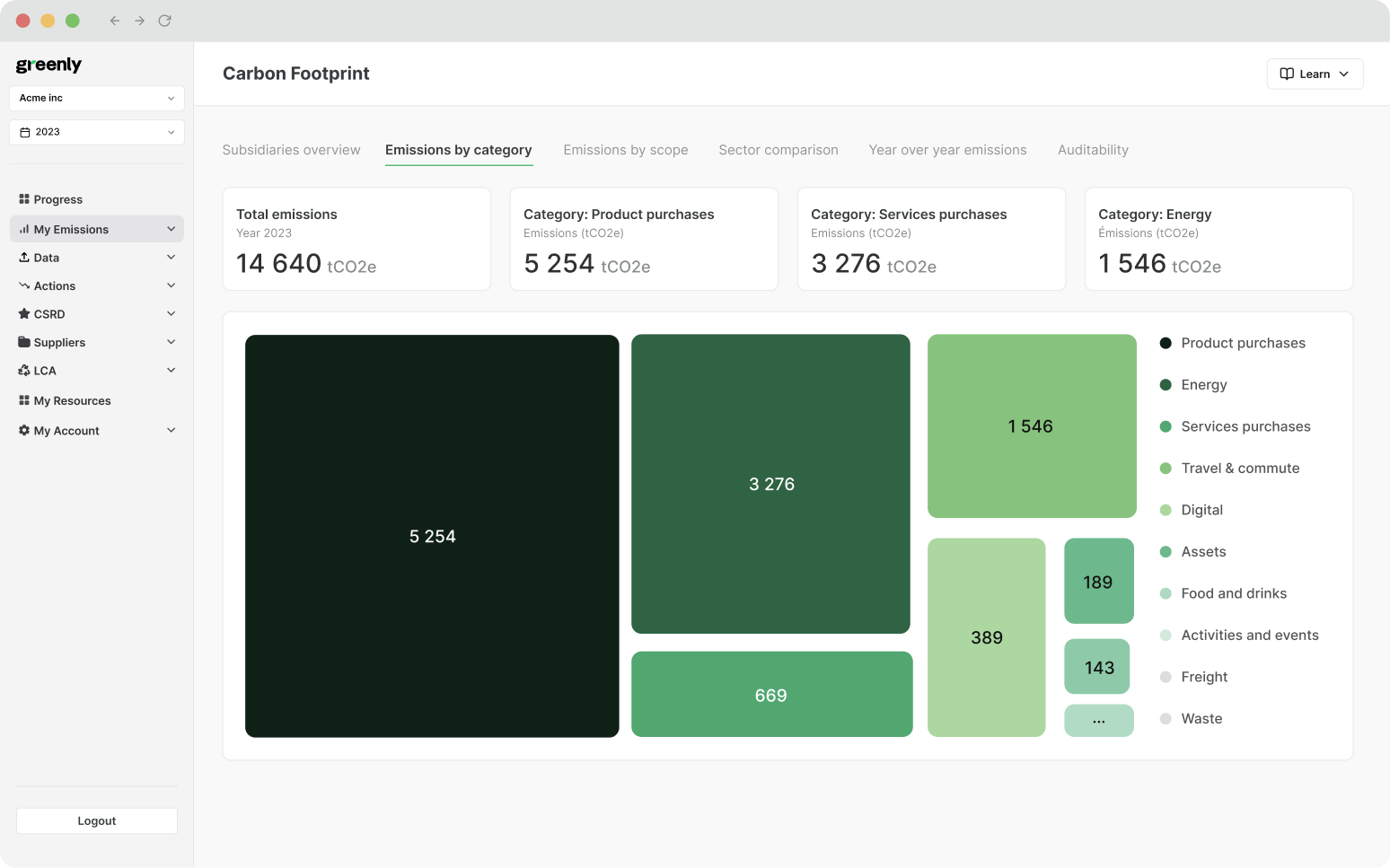ESG / CSR
Industries
What is the Environmental Impact of a Cruise Ship?
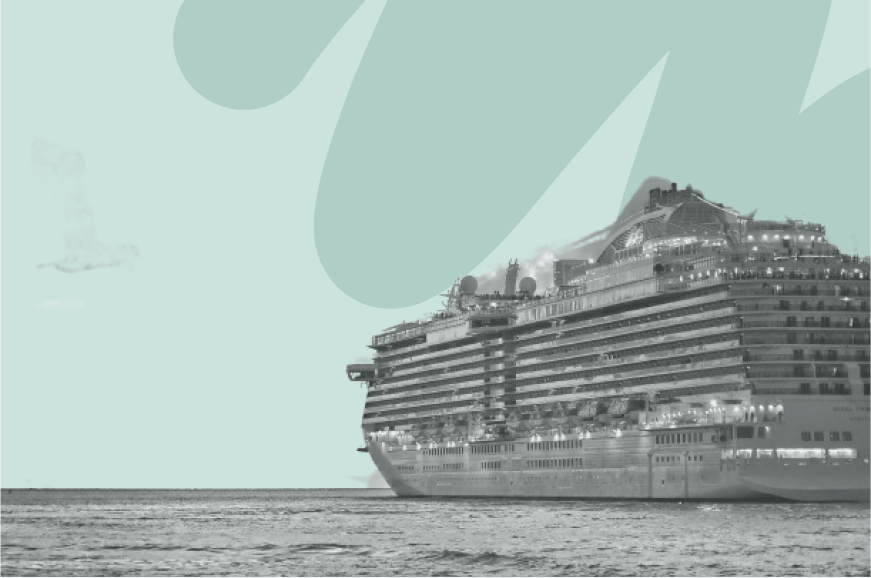


- The kinds of jobs and activities available on a cruise ship
- How cruise ships could be bad for the environment
- Sustainable solutions to make cruise ships more environmentally friendly
Following the pandemic, it seems that everyone is making up for lost time – booking flights for the trips they’ve been dreaming about forever and booking novelty cruise ship packages for their families to enjoy.
People often choose a cruise ship for their vacation as it encapsulates all of the magic of a holiday into one convenient package: activities for the kids and adults alike, endless buffets and entertainment, and travel to an exotic destination.
In this article, we’ll review what a cruise ship is, the nature of a vacation on a cruise ship, examples of cruise ship packages, the environmental impact of a cruise ship, and ways for cruise ships to become more sustainable.
What is a Cruise Ship?
A cruise ship refers to a large ship, with the modern cruise ship weighing in at around 200,000 gigatonnes – which is made for leisure sailing and recreational activities.
Cruise ships remain a popular choice for people seeking both a relaxing and exciting vacation, with 31.5 million people having boarded a cruise ship in 2023 alone.
Are More People Going On Cruises After the Pandemic?
Yes, more people around the world are taking cruises after the pandemic. In fact, according to the Cruise Lines International Association (CLIA), cruise ship goers are set to exceed pre-pandemic levels in 2019 – with 35.7 million cruise ship travelers expected in 2024 alone.
Cruise ships are often the perfect “middle ground” choice for any vacation – as cruise ships can be suitable for solo travelers, romantic getaways, and family-friendly entertainment all aboard the same ship.
This is because cruises often offer multi-various activities to appeal to any and all ages: such as water activities for those craving the taste of summer, exquisite restaurants for foodies, fitness classes for the athletic folks, relaxing self-care such as being able to get a manicure or message while on board.
Here are just a few of the things people can do on a cruise ship:
What Is Going on a Cruise Ship Like?
Think of a cruise ship as a floating hotel-resort – anything you want to see, eat, or do is more likely than not going to be found on a cruise ship.
It is important to note while cruise ships often travel to exciting destinations and serve as a mode of transportation – the allure of a cruise ship mimics the popular saying, “It’s about the journey, not the destination.”
In other words, the highlight of going on a cruise is the on-board experience as opposed to reaching the final destination. In fact, many people will not stay on-land once reaching the destination – instead opting for a day out at the “destination” before returning to the cruise ship.
Some popular cruise ship destinations in the U.S. include:
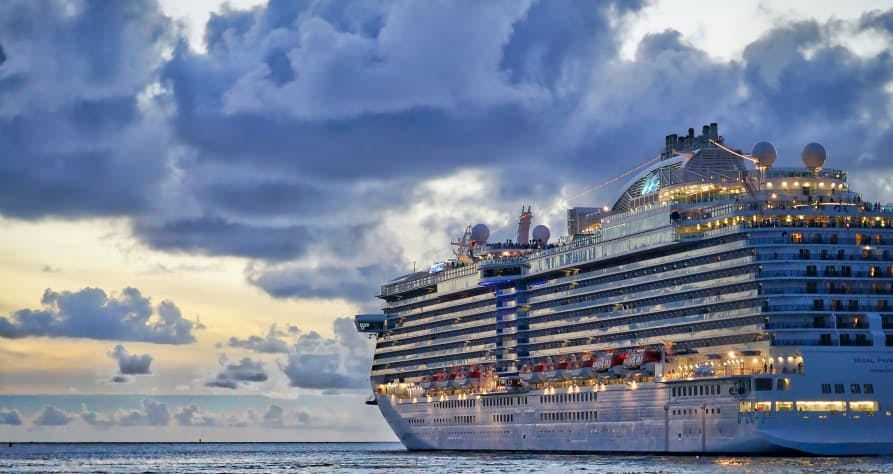
How Much Does a Cruise Ship Cost to Build?
Typically, a cruise ship will cost anywhere from 500 million to 900 million USD to build – with the average customer spending a few hundred for a short cruise ship vacation.
However, it is important to note that the average cost of a cruise will vary depending on which type of cruise ship is used, the final destination, and how long the cruise ship lasts – with the duration of a cruise ship spanning anywhere from a couple of nights to a couple of weeks.
The largest cruise companies are located in the the United States, as evidently – a cruise ship is a popular choice amongst Americans as opposed to Europeans who are more likely to take a train to their holiday destination.
According to U.S. news travel, Caribbean and Alaskan cruises remain the most expensive – with the average person needing to pay an average of $791 and $938 for a week-long cruise respectively for each region. Unsurprisingly, these remain some of the most popular cruise destinations besides Northern Europe and the Bahamas.
Other prices for other cruise destinations include:
- Western Mediterranean Cruise Ship which costs anywhere from $439 to $3,218 for each person for a week-long cruise during high season (June)
- A Mexican Cruise which costs anywhere from $529 to $695 per person for a week-long cruise during off-season (January)
- A Canadian or New England Cruise which costs anywhere from $470 to $954 per person for a week-long cruise during shoulder season (October)
Some may struggle to understand the more expensive nature of a cruise ship, but in reality – the cost is justified with the staggering amount of included activities passengers can experience whilst on a cruise ship.
What Types of Jobs are Available On a Cruise Ship?
In order to provide all of these inclusive recreational activities, several jobs need to be occupied on behalf of a cruise ship company.
Examples of common and necessary job roles on a cruise ship include:
How Much Do People Get Paid on a Cruise Ship?
The salary rates for cruise ship workers will depend on their line of work and how long their contracts last, but usually – they receive a base pay of $1300 USD a month in addition to benefits and being able to travel the world on a cruise ship!
In reality, any job that can be done on land can be done whilst on a cruise ship – making the life of a cruise ship employee perfect for anyone who likes to travel or wants to see the world while also making a living.
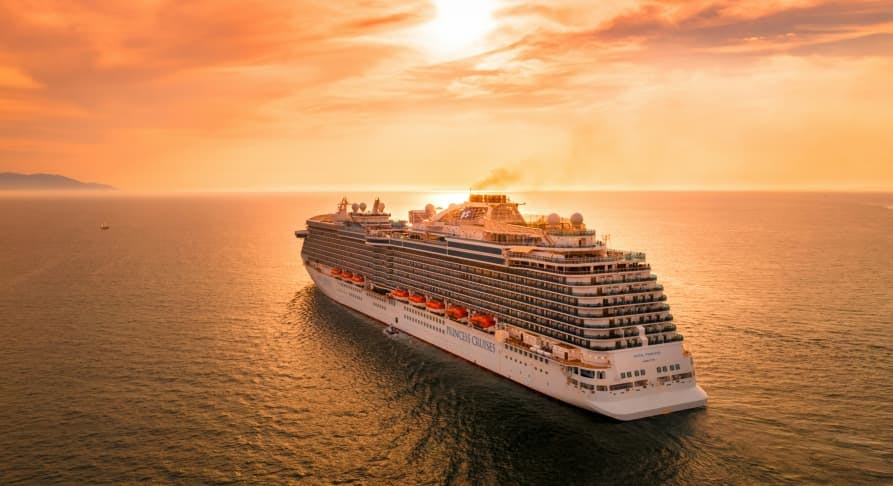
Examples of Cruise Ship Packages
A cruise package is a discounted bundle, often sold on behalf of cruise lines themselves, which can help cruise ship customers to get the most out of their vacation – without needing to plan their entire itinerary by themselves.
Think of a cruise ship package as similar to hiring a travel agent to organize your vacation – as a cruise ship package can offer bundle deals for necessary transportation and additional excursions before, during, and after the cruise ship.
What Is Included in a Cruise Ship Package?
Some of the offers included in a cruise ship package may include:
Discounted Airfare
Offshore Excursions
Food & Beverage
Hotel Nights
Ship Credits
Onboard Entertainment
Ultimately, a cruise ship bundle can help encourage customers to take the plunge and buy their cruise ship ticket – as all of the travel details will often be planned for them and will allow them to make the most of their cruise experience.
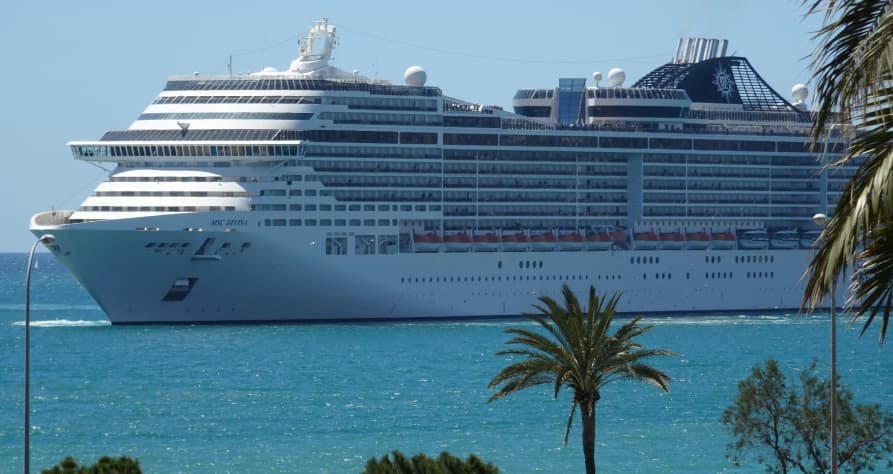
How Bad is the Environmental Impact of a Cruise Ship?
A cruise ship can offer almost anything that comes to mind, but because of all the activities occurring simultaneously – cruise ships often create a massive environmental impact.
The problem with cruise ships is that it’s not only the energy and fuel required to power the actual ship that creates an environmental impact – but the activities of the cruise ship goers as well.
Which is Worse For the Environment: Taking a Cruise or a Plane?
A cruise ship has a much bigger environmental impact than flying. In fact, taking a cruise is worse than flying – with the average cruise ship trip resulting in anywhere from 700 to 1,000 pounds of carbon dioxide emissions per day.
Breakdown of the Environmental Impact of a Cruise Ship
Let’s break down the environmental impact of a cruise ship:
- Building the Cruise Ship – Cruise ships require extensive planning and manufacturing seeing as they are essentially a resort built on water. This requires building bars, pools, spas, and areas for water sports – which are more time and energy intensive than building a traditional apartment or hotel room.
- Fuel for the Cruise Ship – Your potential cruise ship can only coast across the Atlantic or the Gulf of Mexico one way – and that’s with fossil fuel-powered energy to power the cruise ship itself.
- Housekeeping for Rooms – Similar to hotels, housekeeping takes up a lot of energy – with the need to wash sheets and towels everyday for cruise ship clients that don’t opt to reuse their towels.
- Cruise Ship Passenger Activities – When on vacation, people tend to go all out – which means eating more, playing more video games or spending more time online, or working out at the gym more often with the extra time. This results in people using more energy or electricity than they normally would, resulting in a greater environmental impact of a cruise ship.
- Food Waste – There is no way to give excess food to local homeless shelters or to nearby low-income communities while out at sea, which means that uneaten or leftover food ends up going bad whilst at sea and will need to be thrown away – contributing to landfill and overall global food waste.
- Electricity Usage – The treadmills at the gym, video games at the arcade, and slot machines at the casinos on a cruise ship all require electricity – something that a cruise ship doesn’t have access to via a traditional power grid. This means that most cruise ships must rely on a diesel-electric power system, which is when diesel engines work to produce electricity – which in turn, according to the EPA, generates even more emissions and contributes to the depletion of the ozone layer.
Overall, the massive environmental impact created by a cruise ship is created by both the passenger’s activities and the actual cruise ship’s engine and need for power to travel via water.
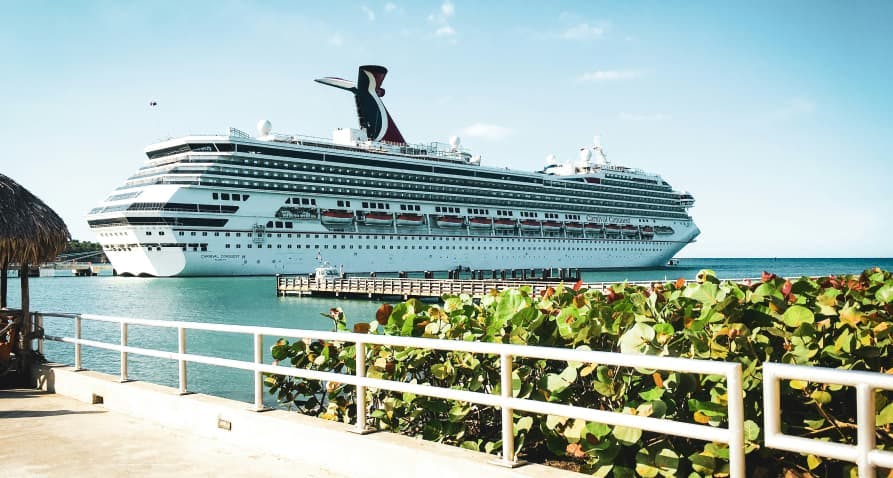
How Can a Cruise Ship Become More Environmentally Friendly?
There are several ways which cruise ships can become more sustainable and eco-friendly, such as by seeking to build more sustainable liners and seeking to implement energy efficiency wherever possible.
While much of the emissions created on a cruise ship are due to the fossil fuels and energy consumption used for traveling on water itself, much of the activities on the cruise ship can also result in a massive carbon footprint.
Disney Cruises Working to Be More Eco-Friendly
In fact, several cruise ship lines are working to become more eco-friendly – such as Disney Cruises working to align their popular cruise ships to meet their emission reduction goals.
Cruise Ships Working to Improve Sustainability
However, not all hope is lost for cruise ships – with some cruise ship companies already paving the way for others to use a guideline towards greater sustainability. For instance, Hurtigruten (a Norwegian based cruise ship company) has recently revealed details to test and develop the world’s first zero-emission cruise ship.
This could prove possible with a cruise ship designed to cling closer to the water, implementing solar powered retractable sails, and opting for battery-powered sailing as opposed to the use of fossil fuels. If all goes according to plan, this first ever sustainable cruise ship could be ready to set sail by 2030.
As a whole, this demonstrates the importance of sustainable construction – and how it can make a difference long-term in an organization or entire industry's emissions.
Even if companies don’t get on board with building more sustainable cruise liners, they can start with building smaller cruise ships in general. As of right now, the average cruise ship can accommodate around 3,000 people – but major cruise ship companies are seeking to build cruise ships which can hold triple the amount of passengers. Inevitably, more passengers means a higher carbon footprint per cruise – which is something for cruise ship companies to think about.
Additional Ways to Reduce the Environmental Impact of Cruise Ships
Some other ideas cruise ship companies should consider to help make their cruises more sustainable include:
- Offering more vegetarian or vegan meal options on board
- Installing solar panels on the sky or sunbathing decks of the ship
- Committing to mitigating food waste such as by avoiding buffets and instead offering passengers tickets to restaurants on board
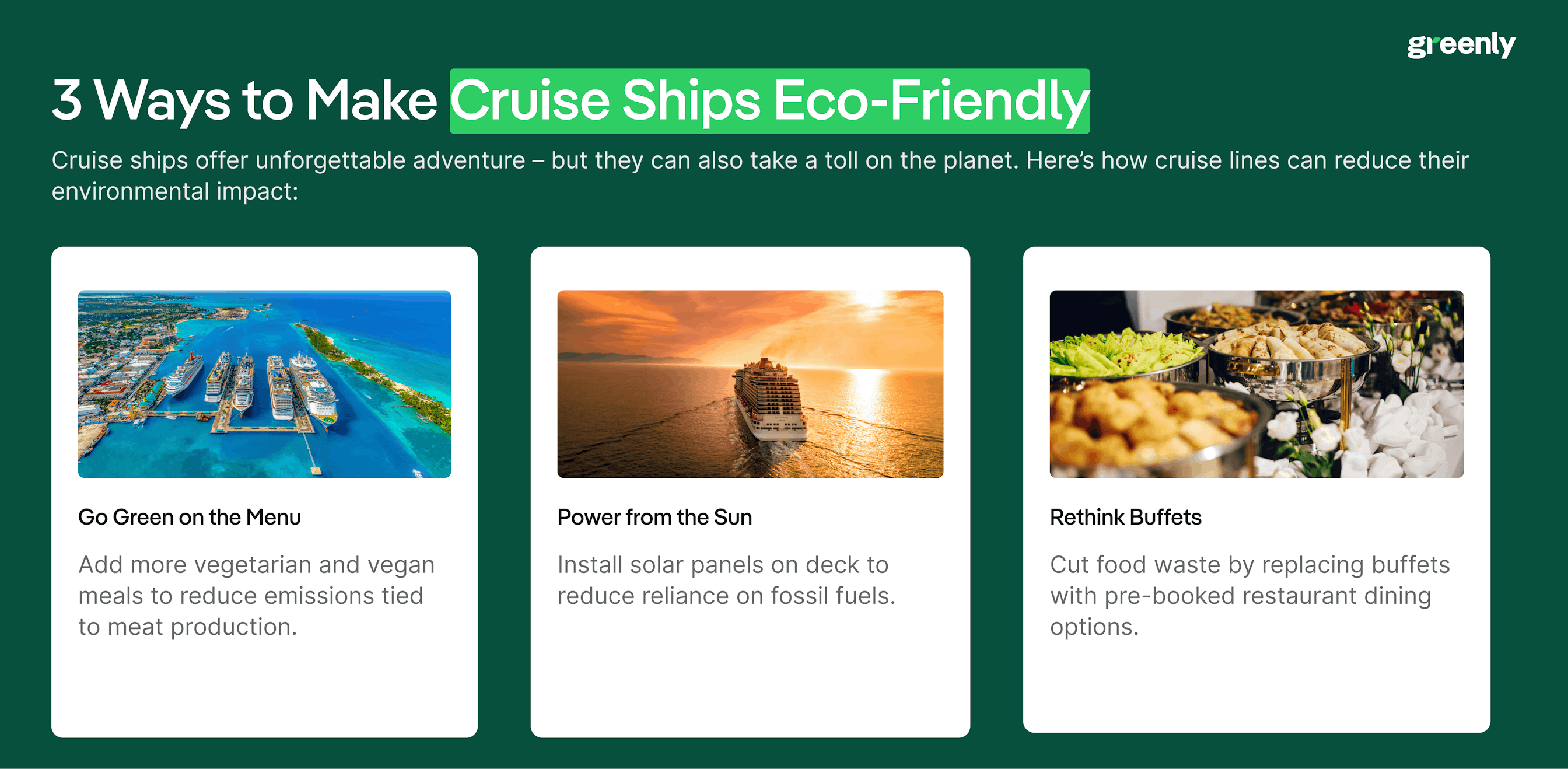

Overall, as travels continues to skyrocket alongside the age of remote working – opting for a cruise ship will remain a popular choice for avid travelers and vacationers alike. Therefore, cruise ship companies which want to sustain themselves in the future should start taking sustainability into consideration.
What About Greenly?
If reading this article about the environmental impact of a cruise ship has made you interested in reducing your carbon emissions to further fight against climate change – Greenly can help you!
It can be challenging to choose eco-friendly activities and extracurriculars, but don’t worry – Greenly is here to help. Click here to schedule a demo to see how Greenly can help you find ways to improve energy efficiency and decrease the dependency on fossil fuels in your own company.
Greenly can help you make an environmental change for the better, starting with a carbon footprint assessment to know how much carbon emissions your company produces.
